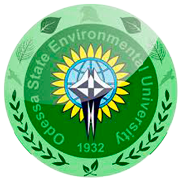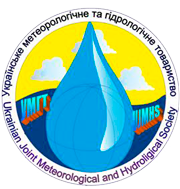Comparative assessment of different municipal solid waste treatment methods based on greenhouse gases emission values
Abstract
The research is aimed at comparing different methods of municipal solid waste treatment (waste burial, composting, complex recycling) depending on the values of generated greenhouse gases. In order to compare waste burial and composting of municipal solid waste based on amount of generated greenhouse gases the calculation methods used for compiling the National Inventory, were taken. The mass balance method was used to estimate the output of a product of complex recycling. The municipal solid waste components differ by amount of degradable organic carbon and decomposition rate but have the largest mass. The municipal solid waste treatment techniques consist in placing such waste at landfills and dumps which are sources of environmental pollution, for example, by greenhouse gases. There are other organic waste treatment methods, such as composting via different technologies, burning, recycling etc. But all of them are also associated with greenhouse gases emission. Easily decomposed organic waste can be used for production of organic fertilizers, but a mandatory requirement, that is separation from the general municipal solid waste stream at the time of waste production, should be complied with. A complex recycling of easily decomposed organic waste, including anaerobic and aerobic composting is offered as an efficient way of waste management. The article presents a comparative analysis of various methods of municipal solid waste treatment based on the amount of greenhouse gases emitted in the Odessa Region. It considers three waste treatment approaches: all waste mass is to be placed at landfills and dumps, composting of some of park and garden waste and burial of other components, complex recycling of food, park and garden waste and some of paper waste according to the developed scheme. Complex recycling offers the least value of total greenhouse gases emission over a five-year period whereas waste disposal is characterized by the highest value thereof. The complex recovery of components containing bioavailable organic carbon through anaerobic fermentation method excludes emission of greenhouse gases into the atmosphere, as the biogas produced can be collected and extracted. However, over a long period, even after two-stage complex recycling, the total emission of greenhouse gases will be lower comparing to other methods of easily decomposed organic waste treatment. Emission of greenhouse gases in case of waste disposal has a prolonged nature whereas emission of greenhouse gases in case of composting occurs within a short period of time which should be taken into account when analyzing the prospects of solving the municipal solid waste problem.
References
98-%D0%B2%D1%80 (accessed 26.04.2018) (in Ukr).
2. Proekt Natsionalnoi stratehii povodzhennia z vidhodamy. Dodatok 1. Munitsypalni vidkhody [Draft national waste management strategy project. Appendix 1. Municipal waste]. Available at: https://menr.gov.ua/content/ tehnichna-redakciya-proektu-nacionalnoi-strategii-povodzhennya-z-vidhodami-dlya-podalshogo-gromadskogo-obgovorennya.html. (accessed 26.04.2018) (in Ukr).
3. Ukraine’s Greenhouse Gas Inventory Report 1990-2016. (2017). Ministry of Ecology and Natural Resources of Ukraine. Kyiv. Available at: https://menr.gov.ua/files/docs/ Zmina_klimaty/kadastr2016/ukr-2018-nir-23may18.zip. (accessed 12.10.2018)
4. 2006 IPCC Guidelines for National Greenhouse Gas Inventories. Vol. 5. Waste. Available at: http://www.ipcc-nggip.iges.or.jp/public/2006gl/vol5.html (accessed 17 January 2017).
5. Sposib kompleksnoi utylizatsii tverdykh pobutovykh vidkhodiv. [The way of complex recovery of municipal solid waste]. Patent Ukr. no. 58436]. (in Ukr).
6. Zvit z analizu isnuiuchoho stanu systemy povodzhennia z TPV v Odeskii oblasti za 2013-2017 rr. [Report on the analysis of the existing state of the waste management system in the Odessa region, 2013-2017 years]. TOV ESKO “Ekologichni systemy”. (In Ukr.).
7. Safranov, T.A., Prykhodko, V.Ju., Shanіna, T. P. (2016). [The waste development of the rubbish dumps and polygons in Odessa oblast]. Vіsnyk Kharkіvskogo natsіonalnoho unіversytetu іm. V.N. Karazіna [Visnyk of V. N. Karazin Kharkiv national university], 14, 83-90. (in Ukr).
8. Safranov, T.A., Prikhodko V.Yu., Shanina, T.P. (2017). [Estimation as emission of greenhouse gases emission from the sites of municipal solid waste disposal: a critical analysis of methods and adaptation to the conditions of the Odessa region]. Vìsnik Odesʹkogo deržavnogo ekologìčnogo unìversitetu [Bulletin of Odessa state environmental university], 21, 5-14. (in Russ).
9. Prykhodko, V.Yu., Safranov, T.A., Shanina, T.P. (2018). [The definition of greenhouse gases emission from sites of municipal solid waste disposal]. Problemy jekologicheskogo monitoringa i modelirovanija ekosistem. [Problems of ecological monitoring and ecosystem modeling], ХХIХ (01), 32-47. DOI: 10.21513/0207-2564-2018-1-32-47. (in Russ).
10. Safranov, T.A., Gubanova, E.R., Shanina, T.P., Prikkhodko, V.Yu. (2014). [Optimization of municipal waste management and treatment system in the context of urban areas sustainable development]. Ustoychivoe razvitie [Sustainable development], 16, 11-18. (in Russ).

This work is licensed under a Creative Commons Attribution 4.0 International License.






